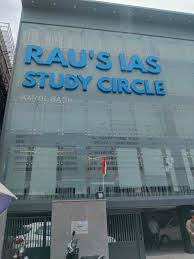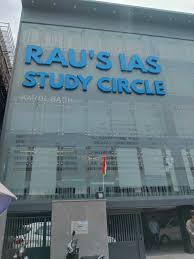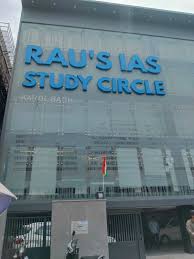
In an unexpected move that has stirred public debate, Rau’s IAS, a renowned coaching institute for civil services examinations, has announced its intention to provide a financial aid of Rs 50 lakh to the families of students who have tragically passed away. This announcement, while generous and intended to offer support during a time of profound grief, comes with a condition that has sparked considerable discussion and controversy.
Table of Contents
The Announcement Rau’s IAS
Rau’s IAS, known for its rigorous preparation programs for aspiring IAS officers, has a reputation for excellence and dedication to its students. The decision to extend financial aid is a testament to the institute’s commitment to its students and their families. The Rs 50 lakh offer is substantial, and it represents a significant gesture of support. However, the terms attached to this offer have raised questions and concerns among various stakeholders.
The Condition Rau’s IAS
The aid of Rs 50 lakh is being offered on the condition that the families of deceased students must agree to a few stipulations:
- Public Acknowledgment: The families must publicly acknowledge the support provided by Rau’s IAS. This acknowledgment is intended to be made through media appearances, social media posts, or other public statements.
- Non-Disclosure Agreement (NDA): The families are required to sign a Non-Disclosure Agreement that prohibits them from discussing the details of the aid, including the terms and conditions, the reasons behind the aid, and any related issues.
- Participation in a Memorial Event: Families must participate in a memorial event organized by Rau’s IAS, which is expected to be both a tribute to the deceased students and a promotional event for the institute’s charitable initiatives.
Reactions and Controversies
The conditions attached to the financial aid have been met with mixed reactions:
- Supporters’ Perspective: Some supporters of Rau’s IAS argue that the conditions are reasonable given the size of the financial aid. They suggest that public acknowledgment and participation in the memorial event could serve as a tribute to the students and help raise awareness about the challenges faced by aspiring civil servants. The NDA, they argue, protects the institute from potential misuse of the aid and helps maintain a respectful environment.
- Critics’ Concerns: On the other hand, critics have expressed concerns that the conditions might exploit the families’ grief for promotional purposes. They argue that requiring public acknowledgment and participation in a memorial event could place undue pressure on grieving families. The NDA has also been criticized for potentially limiting the families’ freedom to discuss their experiences and the support they received, which some view as an unfair constraint.
- Legal and Ethical Implications: The legal implications of the NDA are also a point of contention. Critics argue that it could prevent families from sharing their stories and seeking further assistance or support from other sources. Ethically, some question whether it is appropriate for an educational institution to impose conditions on financial aid that could be seen as leveraging the tragedy for its own benefit.
Institutional Rationale
Rau’s IAS has defended its decision by stating that the conditions are meant to ensure that the aid is used in a manner that honors the memory of the deceased students and supports the institute’s broader mission. The public acknowledgment is seen as a way to celebrate the students’ lives and contributions, while the memorial event is intended to create a meaningful tribute. The NDA, according to the institute, is a measure to maintain privacy and prevent the misuse of the aid.
Impact on Families
For the families affected, the offer of Rs 50 lakh could provide significant financial relief during a difficult time. However, the conditions may create additional emotional and logistical burdens. Families may have to weigh the immediate financial benefits against the potential stress of fulfilling the requirements set by the institute.
Broader Implications
This situation raises important questions about the role of educational institutions in supporting students and their families, especially in times of tragedy. It also prompts a broader discussion about the ethics of conditional support and the potential impacts on recipients. As institutions like Rau’s IAS continue to navigate their roles in such scenarios, it is crucial to consider the balance between generosity and respect for the dignity of those affected.
Conclusion

Rau’s IAS’s announcement to provide Rs 50 lakh to the families of deceased students, coupled with its specific conditions, has generated significant debate. While the financial aid itself is a commendable gesture, the attached stipulations have prompted discussions about the implications for the families involved and the ethical considerations of such conditional support. As this situation unfolds, it will be important for all parties to engage in open dialogue to ensure that the support provided genuinely serves the best interests of those in need while respecting their personal circumstances and dignity.








